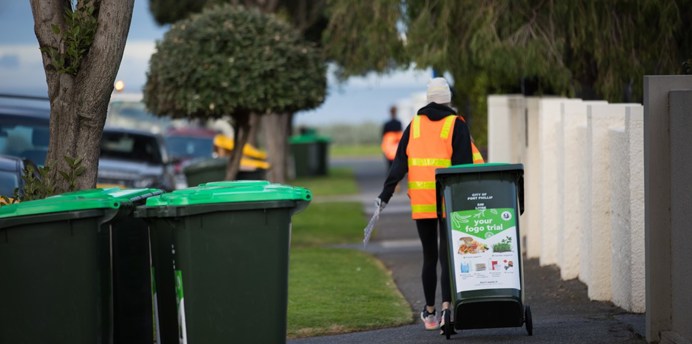Toward a trauma-informed Port Phillip
A trauma-informed approach puts safety and wellbeing first. It means we take steps to understand trauma, how common it is and its effects, and notice and avoid triggering and re-traumatising.
This approach prioritises working together so that everyone is in control of their own lives.
It also means focusing on people’s strengths and being kind, fair, and honest.
To feel safe and be ourselves, we need to feel secure, not just in our bodies, but also in who we are. Including our culture, gender, sexuality, and abilities. For some First Peoples, feeling safe also means being connected to family, community, Country, spirit, ancestors, culture, and language.

Healing Journey by Thelma Beeton
Trauma-Aware Port Phillip values:
These values reflect the heart of Trauma-Aware Port Phillip and the community we are building. They guide how we want to relate to each other, deliver services, and the environment we want to live in.
Trauma-informed levels
Trauma-aware
Becoming trauma-aware is the first step to becoming trauma-informed.
Becoming trauma-aware means we are learning about trauma. We are learning how trauma happens, how often, to whom, what it does to our brains and bodies and what it’s impacts might look.
Being trauma-aware we need to be open to learning new things as well as unlearning things we thought were true.
Trauma-sensitive
Becoming trauma-sensitive means that we are beginning to understand how this knowledge might change how we interact with ourselves and others.
Being trauma-sensitive means looking at our current ways of interacting and working. We look for areas of improvement and how they could be improved.
To ensure our approach is effective, we need to continue to reflect on our ways of interacting and working and be open to change.
Trauma-responsive
Becoming trauma-responsive means we are beginning to understand how our ways of interacting and working will change, how we will become trauma-informed. We are beginning to think about how our knowledge of trauma will look in action.
For organisations this means reviewing policies, procedures, structures, and systems to align with our understanding of trauma-aware and trauma-sensitive practices.
Trauma-informed
Being trauma-informed means we are living what we have learnt.
We are reflecting on our approach, we are open to feedback and new evidence, and we are centring TAPP values in our interactions.
The 4 Rs of trauma-informed:
- Realise the prevalence and impact of trauma and the paths for recovery.
- Recognise the signs and symptoms of trauma within ourselves and our community.
- Respond by changing the ways we interact, our policies, procedures, and practices.
- Resist re-traumatisation and triggering.
Being trauma-informed means we:
- Shift our lens from “what’s wrong?” to “what happened?”
- Recognise everyone in our community can grow and heal.
- Focus on strengths, building skills, and empowering choices.
- Understand the importance of consistency and patience, new relationships can feel unsafe for many people.





